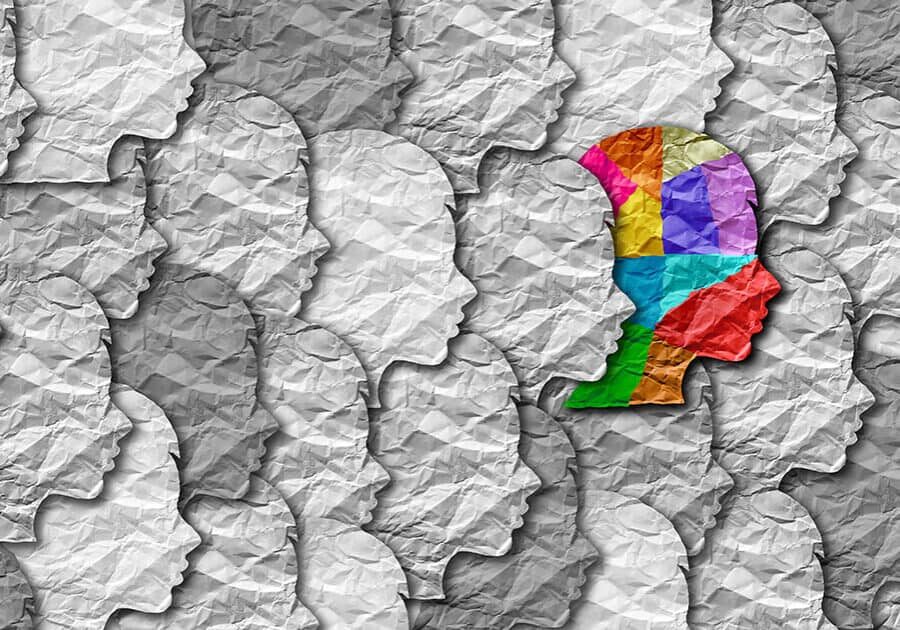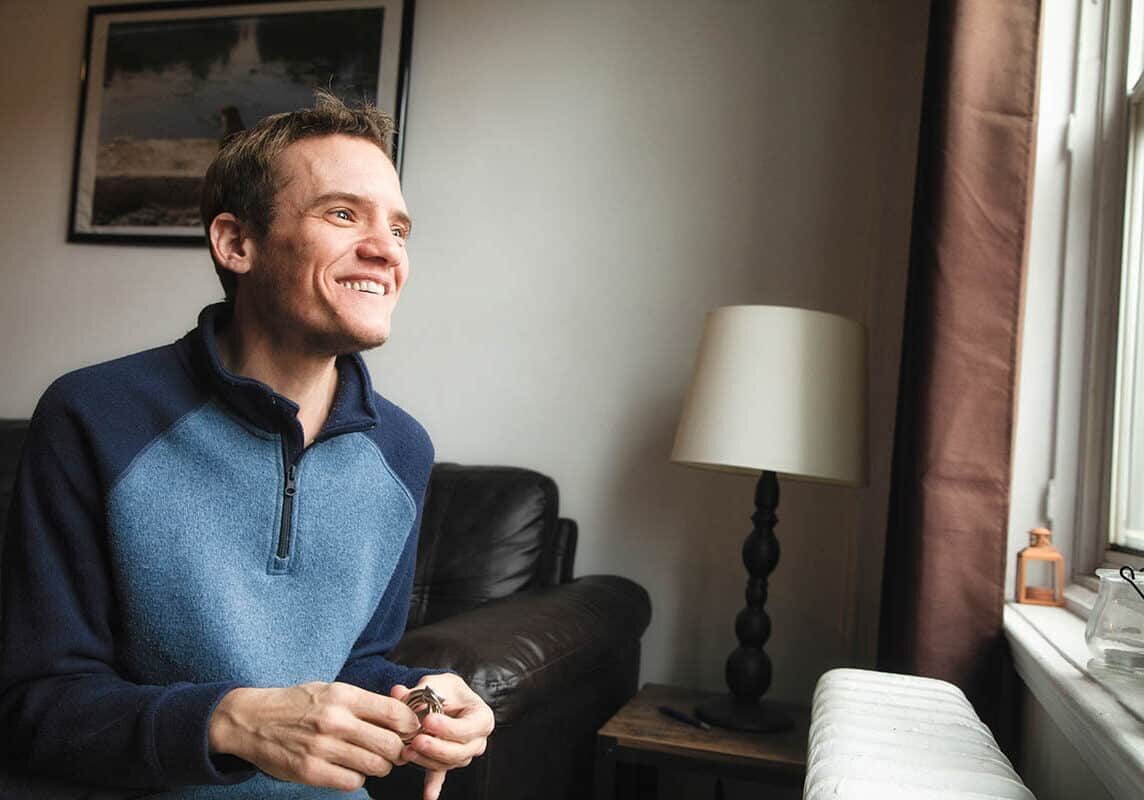Bedford, S.A., Hunsche, M.C., & Kerns, C.M. (2020). Co-occurrence, assessment and treatment of obsessive compulsive disorder in children and adults with autism spectrum disorder. Current Psychiatry Reports, 22(53). https://doi.org/10.1007/s11920-020-01176-x
Boyd, B.A., McDonough, S.G., & Bodfish, J.W. (2012). Evidence-based behavioral interventions for repetitive behaviors in autism. Journal of Autism and Developmental Disorders, 42, 1236–1248. https://doi.org/10.1007/s10803-011-1284-z
Cadman, T., Spain, D., Johnston, P., Russell, A., Mataix-Cols, D., Craig, M., …, & Murphy, D. (2015). Obsessive-compulsive disorder in adults with high-functioning autism spectrum disorder: What does self-report with the OCI-R tell us? Autism Research, 8(5), 477-485. https://doi.org/10.1002/aur.1461
Elliott, S.J., McMahon, B.M., & Leech, A.M. (2018). Behavioural and cognitive behavioural therapy for obsessive compulsive disorder (OCD) in individuals with autism spectrum disorder (ASD). Cochrane Database of Systematic Reviews,11, CD013173. https://doi.org/10.1002/14651858.CD013173
Griffiths, D.L., Farrell, L.J., Waters, A.M., & White, S.W. (2017). Clinical correlates of obsessive compulsive disorder and comorbid autism spectrum disorder in youth. Journal of Obsessive-Compulsive and Related Disorders, 14, 90-98. https://doi.org/10.1016/j.jocrd.2017.06.006
Iniesta-Sepúlveda, M., Nadeau, J.M., Ramos, A., Kay, B., Riemann, B.C., & Storch, E.A. (2017). An initial case series of intensive cognitive–behavioral therapy for obsessive–compulsive disorder in adolescents with autism spectrum disorder. Child Psychiatry & Human Development, 49, 9-19. https://doi.org/10.1007/s10578-017-0724-1
Hoffman, J. & Hudak, R. (2022). Understanding and treating obsessive-compulsive disorder in adults with autism spectrum disorder. Journal of Therapeutic Schools and Programs, 14, 38-73.
Jassi, A., Fernández de la Cruz, L., Russell, A., & Krebs, G. (2021). An evaluation of a new autism-adapted cognitive behaviour therapy manual for adolescents with obsessive–compulsive disorder. Child Psychiatry & Human Development, 52, 916-927. https://doi.org/10.1007/s10578-020-01066-6
Jiujias, M., Kelly, E., & Hall, L. (2017). Restricted, repetitive behaviors in autism spectrum disorder and obsessive-compulsive disorder: A comparative review. Child Psychiatry & Human Development, 48, 944-959. https://doi.org/10.1007/s10578-017-0717-0
Kerns, C. & Kendall, P. (2014). Autism and anxiety: Overlap, similarities, and differences. In Davis III, T.E, White, S.W., & Ollendick, T.H (Eds.) Handbook of autism and anxiety (pp. 75-89). Springer, Cham.
Kerns, C.M., Roux, A.M., Connell, J.E., & Shattuck, P.T. (2016). Adapting cognitive behavioral techniques to address anxiety and depression in cognitively-able emerging adults on the autism spectrum. Cognitive Behavioral Practice, 23(3), 329-340. https://doi.org/10.1016/j.cbpra.2016.06.002
Kerns, C.M., Wood, J.J., Kendall, P.C., Renno, P., Crawford, E.A., Mercado, R.J., Fujii, C., Collier, A., Hoff, A., Kagan, E.R., Small, B.J., Lewin, A.B., & Storch, E.A. (2016). The treatment of anxiety in autism spectrum disorder (TAASD) study: Rationale, design and methods. Journal of Child and Family Studies, 25, 1889-1902. https://doi.org/10.1007/s10826-016-0372-2
Kose, L. K., Fox, L., & Storch, E. A. (2017). Effectiveness of cognitive behavioral therapy for individuals with autism spectrum disorders and comorbid obsessive-ompulsive disorder: A review of the research. Journal of Developmental and Physical Disabilities, 30, 69-87. https://doi.org/10.1007/s10882-017-9559-8
Krebs, G., Murray, K., & Jassi, A. (2016). Modified cognitive behavior therapy for severe, treatment-resistant obsessive-compulsive disorder in an adolescent with autism spectrum disorder. Journal of Clinical Psychology, 72(11), 1162–1173. https://doi.org/10.1002/jclp.22396
Leyfer, O.T., Folstein, S.E., Bacalman, S., Davis, N.O., Dinh, E., Morgan, J., Tager-Flusberg, H., & Lainhart, J. E. (2006). Comorbid psychiatric disorders in children with autism: Interview development and rates of disorders. Journal of Autism and Developmental Disorders, 36(7), 849-861. https://doi.org/10.1007/s10803-006-0123-0
Lehmkuhl, H. D., Storch, E. A., Bodfish, J. W., & Geffken, G. R. (2008). Brief report: Exposure and response prevention for obsessive compulsive disorder in a 12-year-old with autism. Journal of Autism and Developmental Disorders, 38(5), 977–981. https://doi.org/10.1007/s10803-007-0457-2
Martin, A.F., Jassi, A., Cullen, A.E., Broadbent, M., Downs, J., & Krebs, G. (2020). Co-occurring obsessive-compulsive disorder and autism spectrum disorder in young people: Prevalence, clinical characteristics and outcomes. European Child & Adolescent Psychiatry, 29, 1603-1611. https://doi.org/10.1007/s00787-020-01478-8
Meier, S.M., Petersen, L., Schendel, D.E., Mattheisen, M., Mortensen, P.B., & Mors, O. (2015). Obsessive-compulsive disorder and autism spectrum disorders: Longitudinal and offspring risk. PLOS One, 10(11): e0141703. https://doi.org/10.1371/journal.pone.0141703
Nadeau, J.M., Tan, S.Y., McAndrews, J., Park, J., Bergman, R.L., Andrews, J., Leonard, R.C., Ramos, A., Eken, S., Young, P.R., Franklin, M.E., & Riemann, B.C. (2021). Anxiety and depression recovery in ASD: Level 2 patient workbook. Oconomowoc, WI: Rogers Behavioral Health.
Neil, N. & Sturmey, P. (2014). Assessment and treatment of obsessions and compulsions in individuals with autism spectrum disorders: A systematic review. Review Journal of Autism and Developmental Disorders,1, 62-79. https://doi.org/10.1007/s40489-013-0006-1
Nakagawa, A., Olsson, N.C., Hiraoka, Y., Nishinaka, H., Miyazaki, T., Kato, N., Nakatani, E., Tomita, M., Yoshioka, K., Murakami, S., & Aoki, S. (2019). Long-term outcome of CBT in adults with OCD and comorbid ASD: A naturalistic follow-up study. (2019). Current Psychology, 38, 1763–1771. https://doi.org/10.1007/s12144-018-9952-1
Pazuniak, M., & Pekrul, S. R. (2020). Obsessive–compulsive disorder in autism spectrum disorder across the lifespan. Child and Adolescent Psychiatric Clinics of North America, 29(2), 419-432. https://doi.org/10.1016/j.chc.2019.12.003
Postorino, V., Kerns, C.M., Vivanti, G., Bradshaw. J., Siracusano, M., & Mazzone, L. (2017). Anxiety disorders and obsessive-compulsive disorder in individuals with autism spectrum disorder. Current Psychiatry Reports, 19(92). https://doi.org/10.1007/s11920-017-0846-y
Rosen, T.E., Connell, J. E. & Kerns, C.M. (2016). A review of behavioral interventions for anxiety-related behaviors in lower functioning individuals with autism. Behavioral Interventions, 31(2), 120-143. https://doi.org/10.1002/bin.1442
Russell, A.J., Jassi, A.., Fullana, M.A., Mack, H., Johnston, K., Heyman, I., Murphy, D.G., & Mataix-Cols, D. (2013). Cognitive behavior therapy for comorbid obsessive-compulsive disorder in high-functioning autism spectrum disorders: A randomized controlled trial. Depression & Anxiety, 30, 697-708. https://doi.org/10.1002/da.22053
Simonoff, E., Pickles, A., Charman, T., Chandler, S., Loucas, T., & Baird, G. (2008). Psychiatric disorders in children with autism spectrum disorders: Prevalence, comorbidity, and associated factors in a population-derived sample. Journal of the American Academy of Child & Adolescent Psychiatry, 47(8), 921-929. https://doi.org/10.1097/CHI.0b013e318179964f
Ung, D., Selles, R., Small, B.J., & Storch, E.A. (2015). A systematic review and meta-nalysis of cognitive-behavioral therapy for anxiety in youth with high-functioning autism spectrum disorders. Child Psychiatry & Human Development, 46, 533-547. https://doi.org/10.1007/s10578-014-0494-y
Wikramanayake, W.N.M., Mandy, W., Shahper, S., Kaur, S., Kolli, S., Osman, S., Reid, J., Jefferies-Sewell, K., & Fineberg, N.A. (2018). Autism spectrum disorders in adult outpatients with obsessive compulsive disorder in the UK. International Journal of Psychiatry in Clinical Practice, 22(1), 54-62. https://doi.org/10.1080/13651501.2017.1354029
Wood, J.J., Ehrenreich-May, J., Alessandri, M., Fujii, C., Renno, P., Laugeson, E., Piacentini, J.C., De Nadai, A.S., Arnold, E., Lewin, A.B., Murphy, T.K., & Storch, E.A. (2015). Cognitive behavioral therapy for early adolescents with autism spectrum disorders and clinical anxiety: A randomized, controlled trial. Behavior Therapy, 46(1), 7-19. https://doi.org/10.1016/j.beth.2014.01.002
Wolters, L.H., de Haan, E., Hogendoorn, S.M., Boer, F., & Prins, P.J.M. (2016). Severe pediatric obsessive compulsive disorder and co-morbid autistic symptoms: Effectiveness of cognitive behavioral therapy. Journal of Obsessive-Compulsive and Related Disorders, 69–77. https://doi.org/10.1016/j.jocrd.2016.06.002





